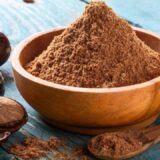Home Remedies for Urinary Tract Infections (UTI) in Ayurveda
Urinary tract infections (UTIs) are a common health concern that can cause discomfort and disrupt daily life. Ayurveda, the ancient Indian system of medicine, offers holistic and natural remedies to address UTIs by focusing on the root cause and restoring balance to the body. Ayurvedic treatments emphasize natural herbs, dietary adjustments, and lifestyle changes to promote urinary health while minimizing side effects.
If you’re tired of relying solely on antibiotics for recurrent infections, exploring Ayurveda might provide the lasting relief you’re looking for. Let’s dive into the Ayurvedic approach to managing and preventing UTIs naturally.
What Causes Urinary Tract Infections (UTIs)?
Urinary tract infections (UTIs) are primarily caused by the invasion of bacteria into the urinary tract. The most common bacterium responsible for UTIs is Escherichia coli (E. coli), which normally resides in the intestines but can move to the urinary tract, leading to infection.
Several factors can increase the risk of developing a UTI, including:
- Poor Hygiene: Improper wiping techniques or inadequate genital hygiene can introduce bacteria into the urinary tract.
- Dehydration: Not drinking enough fluids reduces the frequency of urination, which helps flush out bacteria from the urinary tract.
- Sexual Activity: Sexual intercourse can introduce bacteria into the urinary tract, especially in women due to the proximity of the urethra to the vagina and anus.
- Holding in Urine: Delaying urination for extended periods can cause bacteria to multiply in the bladder, increasing the risk of infection.
Other factors such as anatomical abnormalities, urinary catheter use, or certain medical conditions like diabetes can also contribute to UTI development.
Ayurvedic Perspective
From an Ayurvedic perspective, Urinary Tract Infections (UTIs) are primarily seen as a result of imbalances in the Pitta dosha, which is responsible for regulating heat, digestion, and metabolism in the body. When Pitta becomes aggravated or out of balance, it can lead to an excess of heat and inflammation, particularly in the urinary system.
This imbalance can manifest in several symptoms, such as:
- Burning Sensations: Excessive heat caused by aggravated Pitta can lead to a feeling of burning, especially during urination.
- Discomfort and Pain: Inflammation in the urinary tract results in pain or discomfort, which is a common symptom of UTIs from an Ayurvedic viewpoint.
- Frequent Urination: The Pitta imbalance may cause the urge to urinate frequently, sometimes with little output, due to the inflammatory nature of the condition.
Ayurveda seeks to balance the Pitta dosha through lifestyle modifications, dietary changes, and herbal remedies. Cooling foods, herbs such as Cranberry, Guduchi (Tinospora cordifolia), and Punarvana (Boerhavia diffusa), and practices like staying hydrated, reducing stress, and avoiding excessive heat are commonly recommended to help restore harmony in the body and alleviate UTI symptoms.
Risk Factors
- Weak immunity
- Excessive consumption of spicy or acidic foods
- Poor hydration
- Stress and poor lifestyle habits
Symptoms of Urinary Tract Infections
Early Signs:
- Frequent Urge to Urinate: An increased need to urinate, often with little output each time.
- Burning Sensation While Urinating: A painful, burning feeling when passing urine, caused by inflammation and irritation of the urinary tract.
- Cloudy or Foul-Smelling Urine: The urine may appear cloudy or have a strong, unpleasant odor due to the presence of bacteria and pus.
Severe Symptoms:
- Blood in Urine (Hematuria): Blood may appear in the urine, which can range from a pinkish tint to dark red.
- Pain in the Lower Abdomen or Back: Pain or discomfort may be felt in the pelvic area or lower back, which is often associated with bladder or kidney infections.
- Fever and Chills: A high fever, sometimes accompanied by chills, can indicate that the infection has spread to the kidneys or is severe in nature, requiring immediate medical attention.
If any of these severe symptoms occur, it is important to seek medical attention promptly to prevent complications.
Ayurvedic Interpretation of UTI Symptoms
In Ayurveda, the symptoms of a Urinary Tract Infection (UTI) are often seen as signs of an imbalance in the Pitta dosha, and sometimes also in the Vata dosha. Here’s how these doshas relate to UTI symptoms:
1. Pitta Imbalance:
- Burning Sensation: The heat and inflammation caused by an aggravated Pitta dosha are thought to lead to the burning sensation while urinating, a common symptom of UTIs.
- Cloudy or Foul-Smelling Urine: Excess heat and toxins (known as ama) in the body due to Pitta disturbance can result in foul-smelling urine and cloudy appearance.
- Pain and Fever: Pitta’s heating qualities can also contribute to pain in the abdomen or back and the development of a fever or chills, especially when the infection reaches the kidneys.
2. Vata Imbalance:
- When the Vata dosha (responsible for movement and dryness) is also affected, it can lead to issues like frequent urination and the sensation of incomplete bladder emptying. Vata imbalances may also contribute to the discomfort and pain associated with a UTI.
Ayurvedic Approach to Restoring Balance:
Ayurveda aims to cool and balance the aggravated Pitta and Vata doshas to restore harmony and alleviate UTI symptoms. This is typically achieved through:
- Cooling Foods and Herbs: Consuming foods and herbs that have cooling properties, such as Coconut, Coriander, Cucumber, and Guduchi (Tinospora cordifolia), helps to reduce the excess heat.
- Herbal Remedies: Herbs like Punarvana (Boerhavia diffusa), Gokshura (Tribulus terrestris), and Cranberry are used to help cleanse the urinary system, reduce inflammation, and restore balance.
- Hydration and Detoxification: Drinking plenty of water and herbal teas can help flush out toxins and bacteria from the urinary tract, while also balancing the body’s internal energies.
- Lifestyle Adjustments: Ayurvedic practices, including meditation, adequate rest, and reducing stress, are recommended to support overall health and promote dosha balance.
By addressing both the physical symptoms and the underlying dosha imbalances, Ayurveda works to restore harmony within the body and prevent recurring infections.
Ayurvedic Principles for Treating UTIs
Balancing Doshas: Ayurveda believes in restoring equilibrium among the three doshas: Vata, Pitta, and Kapha. UTIs are primarily linked to Pitta imbalances, so cooling and soothing treatments are key.
Detoxification: A primary goal of Ayurvedic treatment is detoxifying the body to eliminate toxins (ama) and clear urinary passages. This is achieved through herbal remedies and dietary adjustments.
Top 10 Ayurvedic Home Remedies for UTIs
1. Coriander Seed Water
Coriander (Coriandrum sativum) is a common culinary herb with cooling, anti-inflammatory, and diuretic properties. It is often used in Ayurveda to treat digestive issues and urinary tract conditions.
- How to Use: Soak a tablespoon of coriander seeds in a glass of water overnight. Strain the water and drink it in the morning on an empty stomach.
- Benefits: Coriander seeds help reduce inflammation in the urinary tract and flush out toxins. The cooling properties provide relief from burning sensations and discomfort, making it effective for treating UTIs.
2. Tulsi (Holy Basil) Leaves
Tulsi (Ocimum sanctum), or Holy Basil, is a revered herb in Ayurveda known for its immune-boosting and antimicrobial properties. It is often used to purify the body and balance the doshas.
- How to Use: Chew 4-5 fresh tulsi leaves daily, or steep 5-6 leaves in hot water to make tulsi tea.
- Benefits: Tulsi fights infections due to its antibacterial, antifungal, and anti-inflammatory effects. It also boosts immunity, reduces inflammation in the urinary tract, and relieves the symptoms of UTIs.
3. Amla (Indian Gooseberry) Juice
Amla (Phyllanthus emblica) is a vitamin C-rich fruit that has potent antioxidant properties. It is widely used in Ayurveda for boosting immunity, improving digestion, and detoxifying the body.
- How to Use: Drink a tablespoon of fresh amla juice daily, or mix it with a little honey to enhance flavor.
- Benefits: Amla strengthens the immune system, preventing bacterial growth in the urinary tract. It also has anti-inflammatory effects, reducing irritation and inflammation caused by UTIs.
4. Coconut Water
Coconut water is the clear liquid found inside young coconuts. It is rich in electrolytes and is known for its cooling and hydrating properties in Ayurveda.
- How to Use: Drink a glass of fresh coconut water daily.
- Benefits: Coconut water helps relieve the burning sensation associated with UTIs by hydrating and cooling the urinary tract. It also flushes out toxins and supports kidney and bladder health.
5. Barley Water
Barley (Hordeum vulgare) is an ancient grain known for its detoxifying and hydrating properties. It is used in Ayurveda to cleanse the body, aid digestion, and support the urinary system.
- How to Use: Boil a tablespoon of barley in water for 15-20 minutes. Strain and drink the water throughout the day.
- Benefits: Barley water acts as a natural diuretic, helping flush out toxins and bacteria from the urinary tract. It supports kidney function and reduces inflammation, making it beneficial for managing UTIs.
6. Fenugreek Seeds
Fenugreek (Trigonella foenum-graecum) is a herb commonly used in Ayurvedic medicine for its anti-inflammatory, antibacterial, and digestive properties. It is also known to support hormonal balance.
- How to Use: Soak a teaspoon of fenugreek seeds in water overnight. Strain the water and drink it the next morning.
- Benefits: Fenugreek seeds have antibacterial and anti-inflammatory properties. They help reduce inflammation in the urinary tract, fight infections, and support overall detoxification of the body.
7. Pomegranate Juice
Pomegranate (Punica granatum) is a nutrient-dense fruit known for its antioxidant, anti-inflammatory, and antibacterial properties. It has been used in Ayurveda to support overall health, particularly the immune system.
- How to Use: Drink fresh pomegranate juice daily, or consume the seeds.
- Benefits: Pomegranate helps fight bacterial infections in the urinary tract due to its antibacterial properties. It reduces inflammation and prevents the growth of harmful bacteria, promoting urinary tract health.
8. Gokshura (Tribulus Terrestris)
Gokshura (Tribulus terrestris) is an Ayurvedic herb used for its diuretic and anti-inflammatory properties. It supports kidney and urinary tract health, promoting detoxification and overall vitality.
- How to Use: Take Gokshura powder (usually 1-2 teaspoons) mixed in warm water or in capsule form as directed by a healthcare provider.
- Benefits: Gokshura helps detoxify the kidneys and urinary system, reducing inflammation and promoting overall urinary health. It is commonly used for preventing and managing UTIs.
9. Neem (Azadirachta Indica) Leaves
Neem (Azadirachta indica) is a tree with purifying and healing properties. It is widely used in Ayurveda for its antibacterial, antifungal, and detoxifying effects, especially for treating skin and infections.
- How to Use: Boil a few fresh neem leaves in water for 10-15 minutes. Strain the liquid and drink it. Alternatively, neem powder can be consumed in herbal formulations.
- Benefits: Neem is effective in fighting bacterial infections and reducing inflammation. It helps cleanse the urinary tract, prevent infections, and promote healing, making it useful for UTIs.
10. Coriander (Cilantro) Juice
Coriander (Coriandrum sativum), also known as cilantro, is a widely used herb with cooling, digestive, and detoxifying properties. It has been used in Ayurveda to support the urinary and digestive systems.
- How to Use: Blend a handful of fresh coriander leaves with water, strain, and drink the juice once or twice a day.
- Benefits: Coriander has cooling and anti-inflammatory properties. It soothes the urinary tract, reduces inflammation, and helps detoxify the body, providing relief from UTI symptoms.
Dietary Recommendations for UTIs in Ayurveda
Foods to Include: To support healing, Ayurveda recommends incorporating hydrating, cooling, and detoxifying foods into your diet. These foods soothe inflammation, balance the Pitta dosha, and enhance immunity:
- Fresh Fruits: Watermelon, cucumber, and grapes help in cooling the urinary system.
- Leafy Greens: Spinach and other green vegetables detoxify the body.
- Whole Grains: Barley, oats, and quinoa are gentle on the digestive system and help cleanse the urinary tract.
- Herbal Teas: Teas made with coriander, fennel, or cumin seeds promote better digestion and reduce inflammation.
Foods to Avoid: Certain foods can aggravate UTIs by increasing Pitta energy and causing irritation:
- Spicy and fried foods
- Processed and junk foods
- Sour foods like pickles and citrus fruits in excess
- Alcohol and caffeine, which dehydrate the body
Ayurvedic Detox Diet Tips: Adopting a detox-focused diet for a few days can help clear toxins and speed recovery. Drink plenty of water and focus on light, easily digestible meals like khichdi (a rice and lentil porridge).
Hydration and Its Role in UTI Recovery
The Importance of Fluids: Staying hydrated is one of the simplest yet most effective ways to manage UTIs. Drinking enough water helps flush out bacteria from the urinary system and dilutes the urine, reducing irritation.
Ayurvedic Herbal Drinks: Ayurveda emphasizes herbal-infused drinks that not only hydrate but also have healing properties. Some options include:
- Cucumber Juice: Refreshing and cooling, perfect for soothing UTI symptoms.
- Jeera (Cumin) Water: Boil cumin seeds in water and drink it warm for better digestion and detoxification.
- Sandalwood Water: Known for its cooling effect, sandalwood-infused water helps balance Pitta energy.
Lifestyle Tips for Preventing UTIs
Personal Hygiene: Maintaining proper hygiene is key to preventing UTIs. Wash thoroughly after using the restroom, and avoid using harsh soaps that can irritate the sensitive area.
Daily Ayurvedic Practices: Incorporating simple Ayurvedic routines like oil pulling, tongue scraping, and drinking warm water in the morning can improve overall health and reduce the risk of infections.
Stress Management and Yoga: Stress can aggravate imbalances in the doshas, making the body more susceptible to infections. Regular practice of yoga, meditation, and pranayama (breathing exercises) promotes relaxation and strengthens immunity.
Specific Ayurvedic Herbs for Urinary Health
- Gokshura (Tribulus Terrestris): Known for its diuretic properties, Gokshura helps cleanse the urinary tract and alleviate symptoms like pain and burning.
- Punarnava (Boerhavia Diffusa): This herb is excellent for reducing inflammation and strengthening kidney function.
- Varuna (Crataeva Nurvala): Varuna is often used to manage urinary stones and infections. It helps detoxify the urinary system.
- Chandana (Sandalwood): Used in both oil and powder form, Chandana is valued for its cooling and soothing effects on urinary inflammation.
The Role of Panchakarma in UTI Treatment
Overview of Panchakarma Therapy: Panchakarma, a comprehensive detoxification process in Ayurveda, helps eliminate toxins (ama) that accumulate in the urinary system.
Benefits for Recurrent UTIs: This therapy focuses on cleansing and balancing the doshas, making it particularly effective for individuals suffering from chronic or recurrent UTIs.
Popular Panchakarma Treatments
- Basti (Medicated Enema): Helps cleanse and balance Vata dosha.
- Virechana (Therapeutic Purgation): Removes excess Pitta energy, reducing inflammation.
When to Seek Medical Attention
While Ayurvedic remedies can be highly effective, it’s crucial to recognize when professional help is needed:
- If symptoms persist or worsen after a few days of treatment
- If you experience severe pain, fever, or blood in the urine
- For recurrent infections that may need a combination of Ayurveda and modern medicine
Benefits of Choosing Ayurvedic Remedies for UTIs
Natural and Gentle Healing: Ayurvedic treatments rely on herbs and natural substances, minimizing the risk of side effects.
Long-Term Benefits: Unlike antibiotics, which can disrupt gut health, Ayurvedic remedies strengthen the body holistically, preventing future infections.
Personalized Approach: Ayurveda considers individual constitutions (prakriti) and tailors remedies accordingly, ensuring effective and customized treatment.
Precautions While Using Ayurvedic Remedies
- Ensure Proper Dosage
Always follow recommended dosages to avoid unwanted side effects. - Consult an Ayurvedic Practitioner
Seek guidance from a professional for personalized treatment plans. - Avoid Self-Medication
Not all herbs are suitable for everyone, and incorrect usage can worsen symptoms.
Urinary tract infections can be a source of significant discomfort, but Ayurveda offers a gentle and effective path to relief. By addressing the root causes, balancing doshas, and incorporating natural remedies, Ayurveda provides a holistic approach to managing UTIs.
Resources:

























